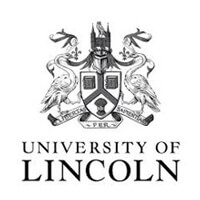fees waived
Economics, BSc (Hons), with industry placement
University of Lincoln, United Kingdom
Subject ranking
UK / Times 58th
UK / Guardian 77th
UK / CUG 114th
Costs
food & rentS$16.8K / year
Entry requirements
Scholarships
Unlimited quantity
Unlimited quantity
Unlimited quantity
Unlimited quantity
Limited quantity
Limited quantity
Information
Code
Code
Intakes
Website (External)
Programmes
Information
Duration
2028
Course summary
This degree aims to equip students with the tools and frameworks to analyse economic issues, as well as the skills necessary to explore and analyse new issues as they emerge in the current dynamic economic environment. Topics such as unemployment, inflation house prices and poverty are hotly debated in the media today. Studying Economics at Lincoln gives students the opportunity to develop their awareness of the integrated and multidisciplinary nature of economics around the world. Fundamental to the subject is a commitment to fostering respect for good academic practice and standards, as well as the confidence to challenge established wisdom. The first year of this course introduces core micro, macro and international economics, together with modules in econometric analysis to give students the opportunity to develop expertise in the statistical techniques used to analyse and interpret economic data. Intermediate micro and macroeconomics are studied in the second year and are prerequisites for the advanced modules which are covered in year three. A range of optional modules in the second and third years are designed to and enable students to tailor their learning in line with their interests and career aspirations. For the most up to date module information, please visit the course page for this programme on our website. Some programmes provide you with the opportunity to focus your study in a particular area through optional modules. Timetabling arrangements may limit the availability of some optional modules to some students. As the options often reflect staff research interests, they may alter over time due to staff availability. The way students will be assessed on this course will vary for each module. It could include coursework, such as a dissertation or essay, written and practical exams, portfolio development, group work or presentations to name some examples. Throughout this degree, students may receive tuition from professors, senior lecturers, lecturers, researchers, practitioners, visiting experts or technicians, and they may be supported in their learning by other students.Modules
Assessment method
The first year of this course introduces core micro, macro and international economics, together with modules in econometric analysis to give students the opportunity to develop expertise in the statistical techniques used to analyse and interpret economic data. Intermediate micro and macroeconomics are studied in the second year and are prerequisites for the advanced modules which are covered in year three. A range of optional modules in the second and third years are designed to and enable students to tailor their learning in line with their interests and career aspirations. For the most up to date module information, please visit the course page for this programme on our website. Some programmes provide you with the opportunity to focus your study in a particular area through optional modules. Timetabling arrangements may limit the availability of some optional modules to some students. As the options often reflect staff research interests, they may alter over time due to staff availability.
A local representative of University of Lincoln in Singapore is available online to assist you with enquiries about this course.

